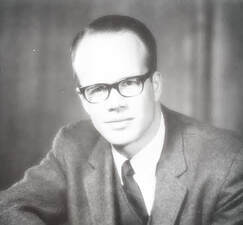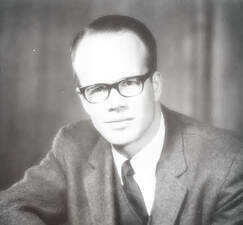Luke 23
|
Luke 23:5:
But they kept insisting, "He is stirring up the people with what he teaches all over Judea, from where he started in Galilee to this place." |
This has forever been a favorite accusation of truth against the work of true reformers. The Romans at this very time had a law forbidding the teaching of any new religion "whereby the minds of men may be disturbed,
|
|
Luke 23:38:
And an inscription also was written over Him in letters of Greek, Latin, and Hebrew: THIS IS THE KING OF THE JEWS. |
The only time in his life the baby “born the King of angels” is called a King is at his crucifixion, by a group of hardened, brutal Roman soldiers who spit out the words as a taunt. And yet they spoke truer than they knew.
The underlying theological fact is that the dying of Christ is a kingly act, not merely in the sense that he dies royally and with dignity, but in the sense that his dying is his supreme achievement for his people: the act by which he conquers their foes, secures their liberty and establishes his kingdom…It is precisely as the crucified criminal that Jesus is the Christ, the King; and the cross…is the scene of his victory. (Donald MacLeod, Christ Crucified) Call that last sentence to mind the next time you hear a Christmas carol proclaim Christ as king. He is our King – but he claimed his crown by hanging on a cross. --Josh Blount |
 James Boice Files
James Boice Files
“The thief on the cross had to be the luckiest man alive. He was nothing more than a low-life criminal, a loser. He had committed a crime. He was convicted for it, and he was crucified for it. So he had no future; he was going nowhere; or worse, he was going to hell. Yet of all the criminals, on all the crosses, on all the hills in the Roman Empire, he was crucified next to Jesus Christ.”
― James Montgomery Boice, 14 Words from Jesus; 2013
 James Boice Files
James Boice Files
“The chief problem with television is that, for those who watch it consistently, it undermines and eventually destroys the ability to think. This is because it communicates primarily images, not by words, and words are necessary if we are to perceive logical connections and make judgments as to what is right and wrong.”
― James Montgomery Boice

23:39 | one of the criminals. Matthew 27:44 and Mark 15:32 report that both criminals were mocking Christ along with the crowd. As the hours wore on, however, this criminal’s conscience was smitten, and he repented. When the impenitent thief resumed his mocking (v. 39), this thief rebuked him and refused to participate again.
23:41 | this Man has done nothing wrong. Even the thief testified of Jesus’ innocence.
23:42 | Lord, remember me. The penitent thief ’s prayer reflected his belief that the soul lives on after death, that Christ had a right to rule over a kingdom of the souls of men, and that He would soon enter that kingdom despite His impending death. His request to be remembered was a plea for mercy, which also reveals that the thief understood he had no hope but divine grace, and that the dispensing of that grace lay in Jesus’ power. All of this demonstrates true faith on the part of the dying thief, and Christ graciously affirmed the man’s salvation (v. 43). -MacArthur Bible Commentary
23:41 | this Man has done nothing wrong. Even the thief testified of Jesus’ innocence.
23:42 | Lord, remember me. The penitent thief ’s prayer reflected his belief that the soul lives on after death, that Christ had a right to rule over a kingdom of the souls of men, and that He would soon enter that kingdom despite His impending death. His request to be remembered was a plea for mercy, which also reveals that the thief understood he had no hope but divine grace, and that the dispensing of that grace lay in Jesus’ power. All of this demonstrates true faith on the part of the dying thief, and Christ graciously affirmed the man’s salvation (v. 43). -MacArthur Bible Commentary
Paradise—lit. “garden” or “park.” The Septuagint uses this word literally in Ecclesiastes 2:5 and Song of Solomon 4:13, although the term also refers to the Garden of Eden (see Gen. 2:8). Later, Paradise was described as the place of the righteous dead in Sheol (Luke 16:19–31). When Jesus spoke to the thief on the cross, He assured him that he would that day reside with Him in Paradise (23:42). This seems to indicate that this word refers to a pleasant place for the righteous among the dead. Revelation 2:7 speaks of Paradise as the restitution of an Edenic paradise, an everlasting home for believers (cf. Gen. 2 and Rev. 22). -The Olive Tree




